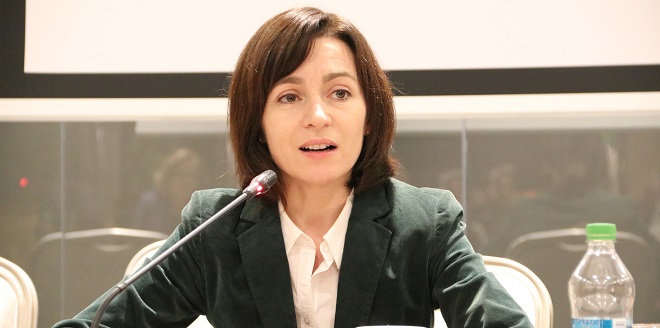Eastern Europe has been a strategic flashpoint for a very long time, many battles have been fought there. However, since the advent of the USSR, the region was part of its sphere of influence and with the mantle of USSR being taken by Russia, it became the major influence in the region. For a really long time, the region has acted as the buffer zone between the western powers and Russia. While the western powers think that gaining the confidence of these countries will make it easier to contain Russia, the Russians consistently tey to thwart these attempts and maintain their area of influence in these previously USSR’s influence zones.
The recently concluded elections in Moldova and the victory of Maia Sandu, a pro-European Moldovan stateswoman is being seen as the watershed moment in the regional geopolitics, and the victory is being made out to be a victory of EU, however, it will be too farfetched to think that the elections are a reflection of Moldova’s permanent shift away from Russia. Maia Sandu was elected president of the country on November 15, 2020, succeeding pro-Russian Igor Dodon. But, only a week ago she had said that it is impossible to resolve the Transnistria issue without Russia, meaning she too recognizes the Russian heft in the region.
Russia, since the 1992 agreement with Moldova under the Presidency of Boris Yeltsin, had promised to help in the peaceful resolution of armed conflict in Transnistria and officially started the takeover of regional influence from erstwhile USSR to Russia. The different regions of Moldova too are both culturally and emotionally connected with Russia and due to their shared history strive hard to be with Moscow.
The leader of the pro-EU Party of Action and Solidarity Maia Sandu won against the incumbent, President Igor Dodon. Sandu won the run-off election with 57.7% of the vote and Dodon gained 42.2%. Thus, it was not totally one-sided and any psephologist would be able to tell that the election was decisive but not one-sided. And while addressing International Relations, we forget that internal matters play a bigger role in deciding the elections. As a result, we tend to make binary judgements in complex social settings.
Russia has never relented its areas of influence, and there are multiple examples for the same. Be it Ukraine, Crimea and even more recently the resolution of the month-long conflict in Nagorno-Karabakh where Russia made sure no Turkish influence was sustained and stationed its peacekeeping forces in war-ready mode to take on any exigencies.
Moscow has also been working towards reestablishing its old influence and linkages in Eastern Europe. The Belarus situation was the wakeup call for Moscow, and since then Putin has put his weight behind the diplomatic efforts to reinvigorate its influence in the region.
The elections in Moldova may seem to signal a tilt towards the European Union, but the Russian influence in the region is historical and is not superficial and because of which any analysis propounding the decline of Russian influence is a shallow analysis. Moldova cannot afford to be partisan in its dealings with Russia, and which is why the election does not mean the country will sit in EU’s lap.
